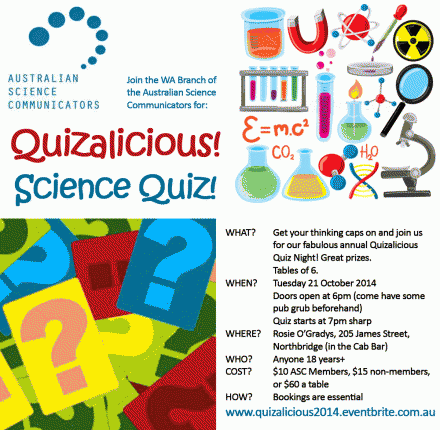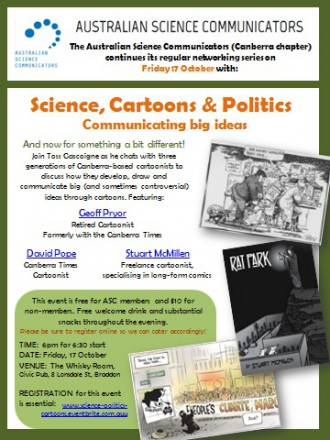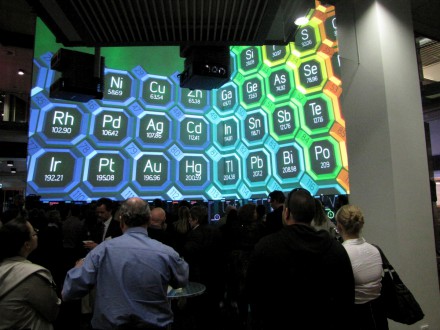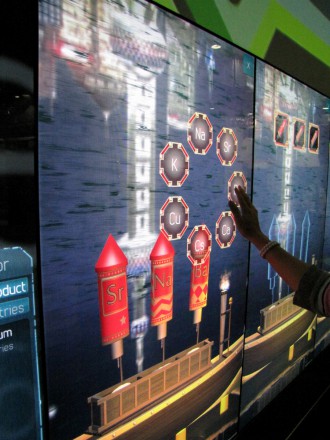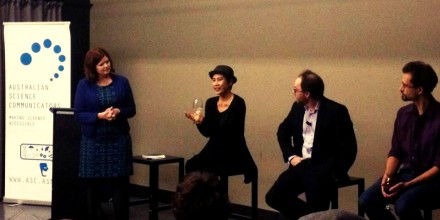Dear members.
The ACT branch of the ASC is holding our local Annual General Meeting on Tuesday, November 18th.
The AGM will start at 530pm (Meeting Room, Belconnen Arts Centre, 118 Emu Bank) and we welcome you to attend and help shape our branch into 2015. We should be finished by about 630pm where you are invited to have a drink and network and chat with other members at the nearby LaDeDa bar.
Please register at https://ascactagm2014.eventbrite.com.au
PROXY: If you can’t attend and wish to pass on your proxy vote please register via this link here and use the following (or similar) wording when passing on your proxy vote:
I hereby authorise Ian McDonald as ASC ACT branch President (or name of other ASC member in attendance) as proxy holder for the ASC ACT branch Annual General Meeting on Tuesday November 18, 2014 to vote on my behalf.
As we need a quorum (20% of members), this is important so our AGM is valid.
In 2015, all committee roles are open:
- President
- Treasurer
- National liaison position (this position can be held as a dual-role by President, Treasurer or a Committee member)
- Secretary
- Social Media and web Officer
- Marketing officer
- Digital Media officer
- Student liaison offier
- General committee members
For more information on committee member roles please send an email or expression of interest to asccanberra@gmail.com before the AGM. We welcome anyone and everyone to be involved but you do need to be a current financial member. A committee position is really what you make it and we are looking for enthusiastic and energetic members to help us make ASC even better in 2015. If you are not interested in taking on a role but would like to participate on the committee please let me know and we can discuss options.
Why should you join the committee in 2014?
Canberra has a great hub of science communicators and by joining the committee you can help us not only support our local science communicators but tailor events and workshops to meet the needs of our members. In 2014, the local branch ran a variety of networking and social events, while also organising some small scale events focused on communicating science to the public. It’s a great way to network and make yourself known within the industry.
ACT AGM agenda items:
- Confirmation of members attending, apologies
- Notification of proxies
- Minutes of 2013 AGM
- President’s report
- Treasurer’s report
- General discussion about 2014 activities
- Election of new committee members
- Ideas for 2015
- AOB
We would love to see a strong local contingent at our AGM so we hope you can make it.
Kind regards,
— ASC Canberra Committee Our ASC profile Check us out on Facebook

